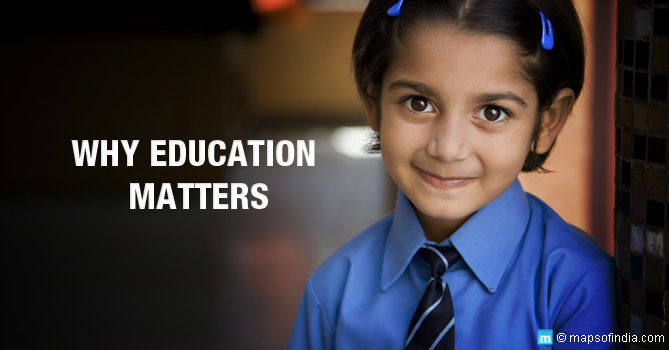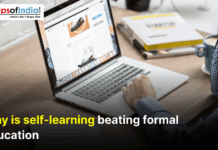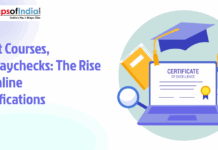According to the Oxford English Dictionary, knowledge means facts, information and skills acquired through experience or education. Knowledge constitutes the theoretical or practical understanding of a subject. Mankind, the descendants of the ape family, is different from all other animals only because of knowledge and its application. And knowledge can be gained only through education.
It goes without saying that education is essential for creating equality and eliminating barriers and discrimination on the basis of race, gender and economic status. A nation’s progress and development depends on the availability of this basic civil right of education to all its citizens. It was for education that a Pakistani schoolgirl, Malala Yousafzai, defied threats from the Taliban to campaign for the right to education. She survived after being shot in the head by the Taliban and has since become a global advocate for human rights, women’s rights and the right to education.
Importance of Education
Apart from giving the ability to earn a living through professional skills, the outcomes of education are multifarious which include:
- Promotion of a democracy through cultivation of a civilized society which in turn will help in the harmonious development of the entire nation.
- Cultivation of world peace.
- On a personal level, education helps in maturity and integration of personality which helps in the right modification of behaviour helping a human deal with life as a whole.
It has indeed been truly said that “the value of life can be measured by how many times your soul has been deeply stirred” and it is knowledge, through education, that stirs one’s soul.
Different Kinds of Education
Apart from school and college education, education constitutes the following:
Adult Literacy: Illiteracy is the bane of any society. Education helps remove this evil and thus governments across the world are trying to remove this evil by giving basic education to adults through established free education centres.
Women’s Education: It has been rightly said that when you “Educate a man, you educate one person, educate a woman, you educate a complete family.” In societies where women have been in the shadows till the late 20th century, special drives and schemes are being conducted to educate women, bring them to the forefront and facilitate a holistic development of the society.
Education in India
From time immemorial, India has been conscious of the importance of education for complete development of a society. Ever since the Vedic Age, education has been imparted to succeeding generations in Gurukuls and this education did not constitute only bookish knowledge of Vedic chants. Students were also given the necessary vocational training required to be a complete person. Thus the Kshatriyas learnt the art of warfare, the Brahmins learnt the art of imparting knowledge, the Vaishya caste learned commerce and other specific vocational courses and so on and so forth. However the Shudras, considered to be the lowest caste in the society were deprived of education.
To correct this deprivation and keeping in mind the inclusive development of the entire society, the Reservation Scheme, under which free education is provided to the lower castes with reservation of seats in colleges as well as jobs, was introduced as early as in the early 1900s and later found its rightful place in the Constitution of India.
In the present age too, recognising the requirement of an overall development of the society through equal opportunity to all, the government has included various articles in the Indian Constitution to facilitate free and compulsory education for all children aged between 6 and 14.
To encourage those belonging to economically weaker sections to send their children to school for education and provide nutritious food, the Midday Meal Scheme was launched by the Government of India. The programme provides for free lunch on working days to children in primary and upper primary classes in government, government-aided, local body, Education Guarantee Scheme and alternate innovative education centres, Madarsa and Maqtabs supported under Sarva Shiksha Abhiyan and National Child Labour Project schools run by the Ministry of Labour. This scheme has helped in increasing enrolment, attendance as well as retention of economically backward students in government schools.
In another important initiative, the government also announced free and subsidised education for girls. The program has been designed with the aim to offer free education at high school level to all girls of single child families.
However, India is facing a problem in the field of enrolment of students for higher education. The low rate of enrolment is an outcome of unequal access, and more importantly lack of relevance. Concrete solutions are required to change this undesired scenario. Some of the suggestions for maximum outreach of higher education are as follows:
- While the backward classes have been taken care of through the Reservation Policy, steps have to be taken by the government to erase the disparities between the poor and the affluent.
- Higher education should be an education of relevance. In the present age, there are innumerable graduate degree holders who remain jobless. If vocational training was to be included in the curriculum and students given the option of pursuing either higher education or a career of their choice after Higher Secondary based on the vocational training received, there be lesser menace of unemployment.
Conclusion
Education helps a person realise their potential, which in return helps foster a stronger and cohesive society. Denying one access to this is to deny one the very basic right to be a complete human being. The importance of education has to be permeated at every level of human society: the family, the community and the state at large.
Read More:
International Literacy Day 2016: How far behind is India in achieving its Literacy Goals
Courses and Competitive Exams After Class 10th
Competitive Exams After 12th
Competitive Exams After Graduation
How to Apply for Education Loan
Job-oriented Courses after Graduation in Arts
Job-oriented Courses After Mechanical Engineering
Job-Oriented Courses after Graduation in Science
Job-Oriented Courses after Graduation in Commerce
Tips on a Good CV
Most Beautiful Campuses in India
Redefining Sex Education
Vidya Lakshmi Portal Education Loan Scheme
Education for all: Smriti Irani’s big challenge
What is CBCS or Choice Based Credit System? How Does It Work?
Educational Frauds In India : Fake Universities
Sustainable Development Education in Schools
Free PG Education for SC/ST Students in Bihar- Will Other States Follow?
Education and Awareness Key to Eradicate Tuberculosis
India’s B-school Factories: A Damning Expose of Our Education System
A Non-Working Education Policy? Quality Is the Answer
Education Sector: A Fertile Ground for Business, A Playground for Politicians
Beyond Right to Education: UNICEF on How to Ensure Quality
Top 10 Engineering Colleges in India
Top 10 Medical Colleges in India
Top 10 MBA Colleges in India
Top 10 Commerce Colleges in India






